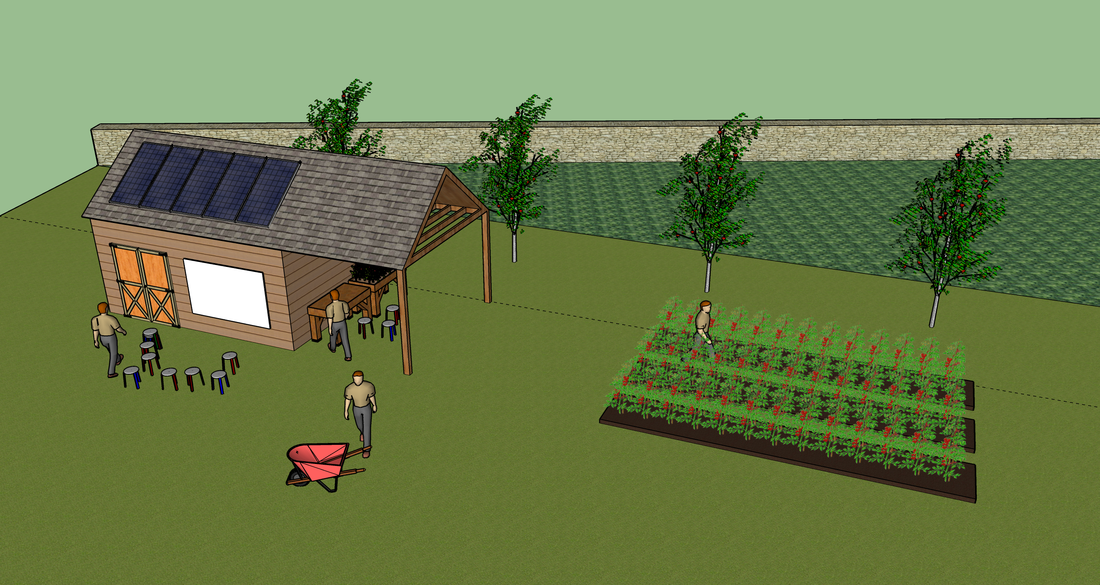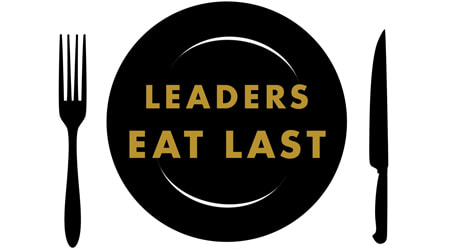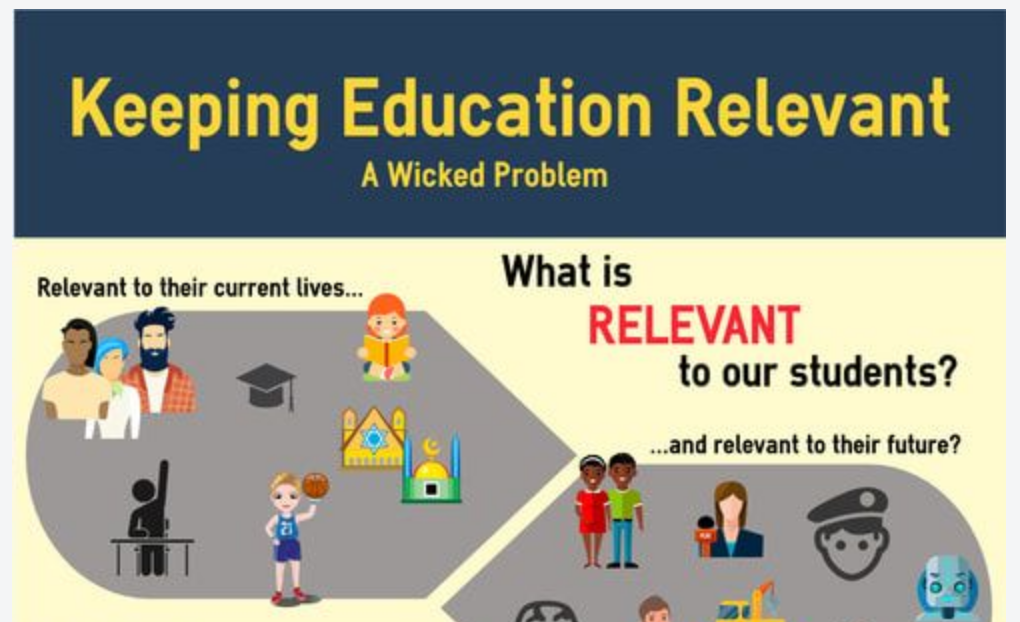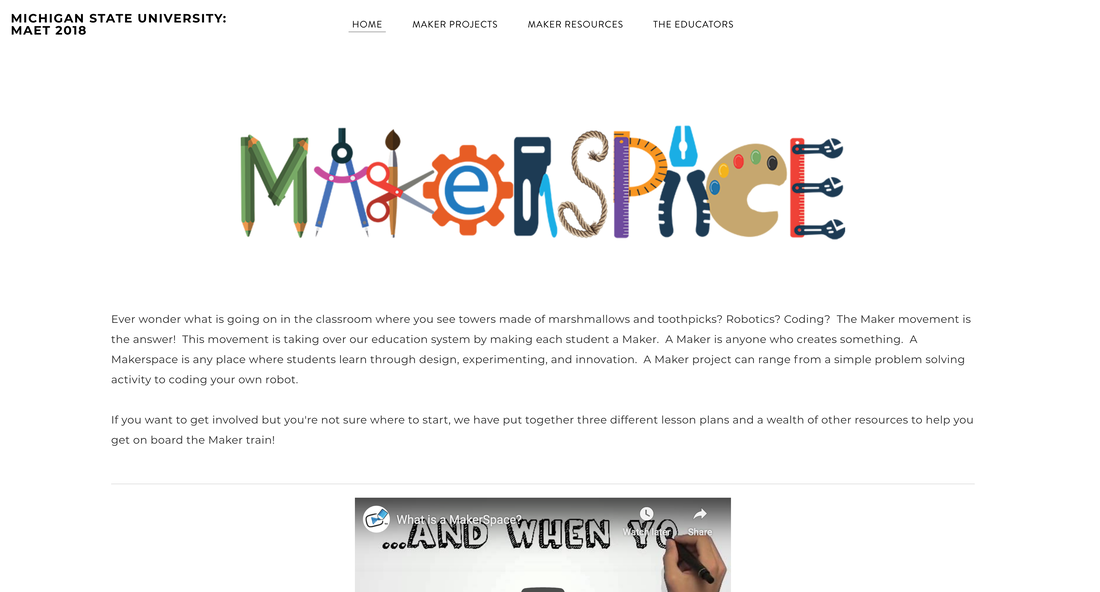Contained here is a collection of work that I have produced over my three years in the Michigan State University Master of Art in Educational Technology (MAET) program. These selections highlight the foundational subjects of the program, and include some of the work of which I'm most proud. I've categorized them by Leadership & Designing Education, Creativity & Maker Education, and Teaching & Learning. For each example below, click on the title or the image to see the complete and original work.
Leadership & Designing Education
Learning Spaces: Think Beyond the Walls
This project reflects my understanding of how learning spaces affect the students and the learning that happens therein. It discusses my earlier design work for Roxbury Latin's IDEA Lab, and proposes a new outdoor classroom space.
Skills Demonstrated: Innovative learning space design, CAD software |
Leaders Eat Last: A 3x3x3 Synopsis
This "3x3x3" is a three-minute video that spotlights three key ideas in a work about leadership, and offers three practical implications for educators. My video discusses Simon Sinek's 2014 book Leaders Eat Last. I used this as an opportunity to learn a new (to me) piece of video editing software called Camtasia.
Skills Demonstrated: Leadership strategies, video creation and editing |
Wicked Problem: Keeping Education Relevant
"A wicked problem is a social or cultural problem that is difficult or impossible to solve for as many as four reasons: incomplete or contradictory knowledge, the number of people and opinions involved, the large economic burden, and the interconnected nature of these problems with other problems." (wickedproblems.com) My partner and I selected and defined a wicked problem in education, gathered data from colleagues, and proposing some practicable steps toward a solution.
Skills Demonstrated: Critical analysis, problem solving |
Creativity & Maker Education
Maker Project & Resource Web Page
In order to engage with the burgeoning maker world in education, my partner and I designed a maker-style activity, tested it with a group of young summer camp students, refined it based on feedback, and then collaborated with several other student groups in creating a maker resource website that included instructions for teachers interested in using our lesson plans. My work focused on a lesson with Ozobots, but I was also involved in the creation of the whole site.
Skills Demonstrated: Creative maker curriculum design, iterative design process, collaboration, web site construction |
The Building Blocks of Creativity
In this essay, I try to define creativity as I understand it, and discuss the ways that we should and shouldn't try to encourage or teach creativity in formal education.
Skills Demonstrated: Deep understanding of creativity in educational contexts, writing |

Image by Esi Grünhagen from Pixabay
|

Image by Pete Linforth from Pixabay
|
"The Failure Fetish”: An Alternative (Altman, 2013)
I understand the inclination to de-stigmatize failure, but I think that the "movement" has gone too far. In this essay, I try to propose an alternative way to normalize iteration and persistence without calling incomplete work a failure.
Skills Demonstrated: Independent critical thought, iterative learning processes, writing |
Teaching & Learning
Math Mastery: An Approach to Algebra Skills Teaching and Assessment
This research paper builds upon existing research regarding mastery learning, online learning systems, assessments, and grading, to propose a system for teaching algebra to a broad array of students. Particularly, I try to explore how technology might be used to surmount the challenges that teachers often face when trying to use traditional mastery learning pedagogy.
Skills Demonstrated: Educational research, technology-driven problem solving, writing |

(Image by Gordon Johnson from Pixabay)
|
Learning: Self-Reflection
This essay briefly defines four learning theories: behaviorism, cognitivism, constructivism, and connectivism, and discusses the ways in which they play out and/or influence the teaching and learning that happens in my classroom.
Skills Demonstrated: Application of educational theory to practice, research, writing |





